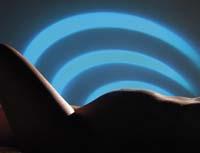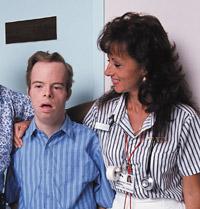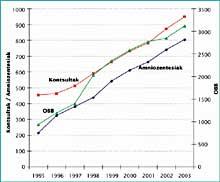Genetadi presents technology to detect 150 genetic syndromes from amniocentesis
2011/05/01 Elhuyar Zientzia Iturria: Elhuyar aldizkaria

Genetadi Biotech presents the XXVI edition of a device based on amniocentesis for extended prenatal diagnosis. National Congress of Human Genetics, Murcia. It is based on microarrays technology --chips that hybridize gender- and its diagnostic accuracy is 100 times higher than the conventional cytogenetics technique. The device, called Amniochip, is capable of detecting 150 genetic syndromes. "All are currently validated syndromes, among which are malformations and idiopathic mental delays that are not perceived with conventional karyotypes," explains Silvia Ávila, one of the directors of Genetics.
According to scientists, one of the advantages of this technique is that it is not necessary to grow cells. Therefore, "the new device reduces waiting time for results to 48 hours, while conventional karyotype techniques take three weeks to do so." However, it is the diagnostic instruction itself and starts with a standard amniocentesis performed by the specialist gynecologist. "The way to take amniotic fluid is the same as the current one," explains Dr. Avila. For Amniochiper, just take 8-10 milliliters in a tube."
"Amniochip can be appropriate for all women who are going to perform a conventional genetic study (karyotype or FISH), that is, when it is suspected that there are malformations in the ultrasound, or when the triple marker is positive, or in women over 35," explains Ávila.
Amniochip is based on microarrays of gene hybridization. This technique "marks the sample to be analyzed and a reference DNA with various fluorocromes. These DNA are hybridized in a crystal with thousands of fragments of human DNA. The selected regions of the entire human genome for Amniochiper correspond to 150 known syndromes. The following are the regions that have been hybridized differently in the control and in the patient using software, and so it is known that in the DNA there is a different dose (microdelezio or microbicolagado)", explains the expert.

Gai honi buruzko eduki gehiago
Elhuyarrek garatutako teknologia






